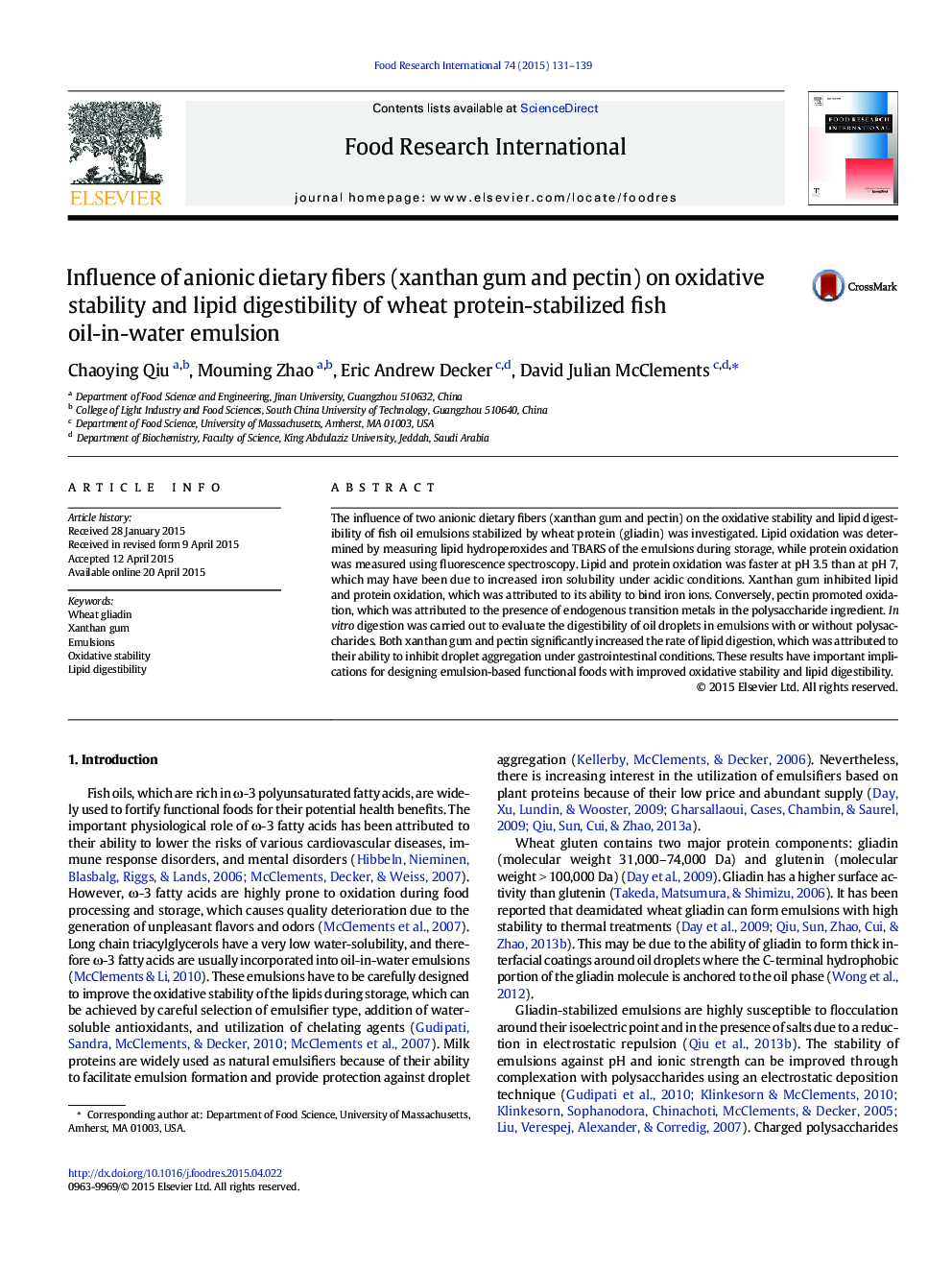| Article ID | Journal | Published Year | Pages | File Type |
|---|---|---|---|---|
| 4561414 | Food Research International | 2015 | 9 Pages |
•The impact of anionic dietary fibers on lipid oxidation and digestion of fish oil was studied.•Xanthan gum inhibited the oxidation of emulsified fish oil, but pectin promoted it.•Protein oxidation occurred concurrently with lipid oxidation in the emulsions.•Both fibers increased the rate of digestion of protein-stabilized fish oil emulsions.
The influence of two anionic dietary fibers (xanthan gum and pectin) on the oxidative stability and lipid digestibility of fish oil emulsions stabilized by wheat protein (gliadin) was investigated. Lipid oxidation was determined by measuring lipid hydroperoxides and TBARS of the emulsions during storage, while protein oxidation was measured using fluorescence spectroscopy. Lipid and protein oxidation was faster at pH 3.5 than at pH 7, which may have been due to increased iron solubility under acidic conditions. Xanthan gum inhibited lipid and protein oxidation, which was attributed to its ability to bind iron ions. Conversely, pectin promoted oxidation, which was attributed to the presence of endogenous transition metals in the polysaccharide ingredient. In vitro digestion was carried out to evaluate the digestibility of oil droplets in emulsions with or without polysaccharides. Both xanthan gum and pectin significantly increased the rate of lipid digestion, which was attributed to their ability to inhibit droplet aggregation under gastrointestinal conditions. These results have important implications for designing emulsion-based functional foods with improved oxidative stability and lipid digestibility.
